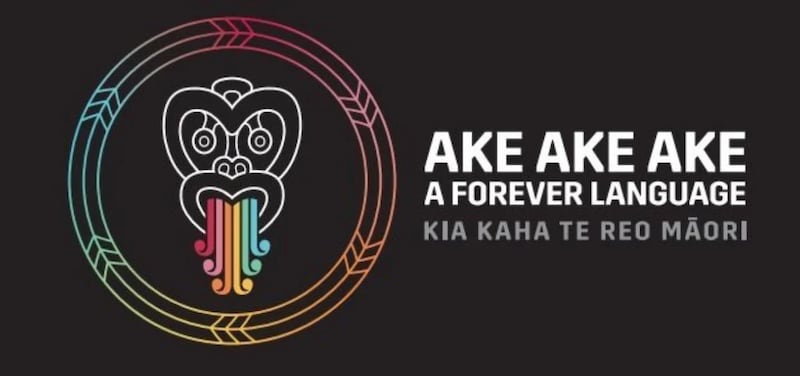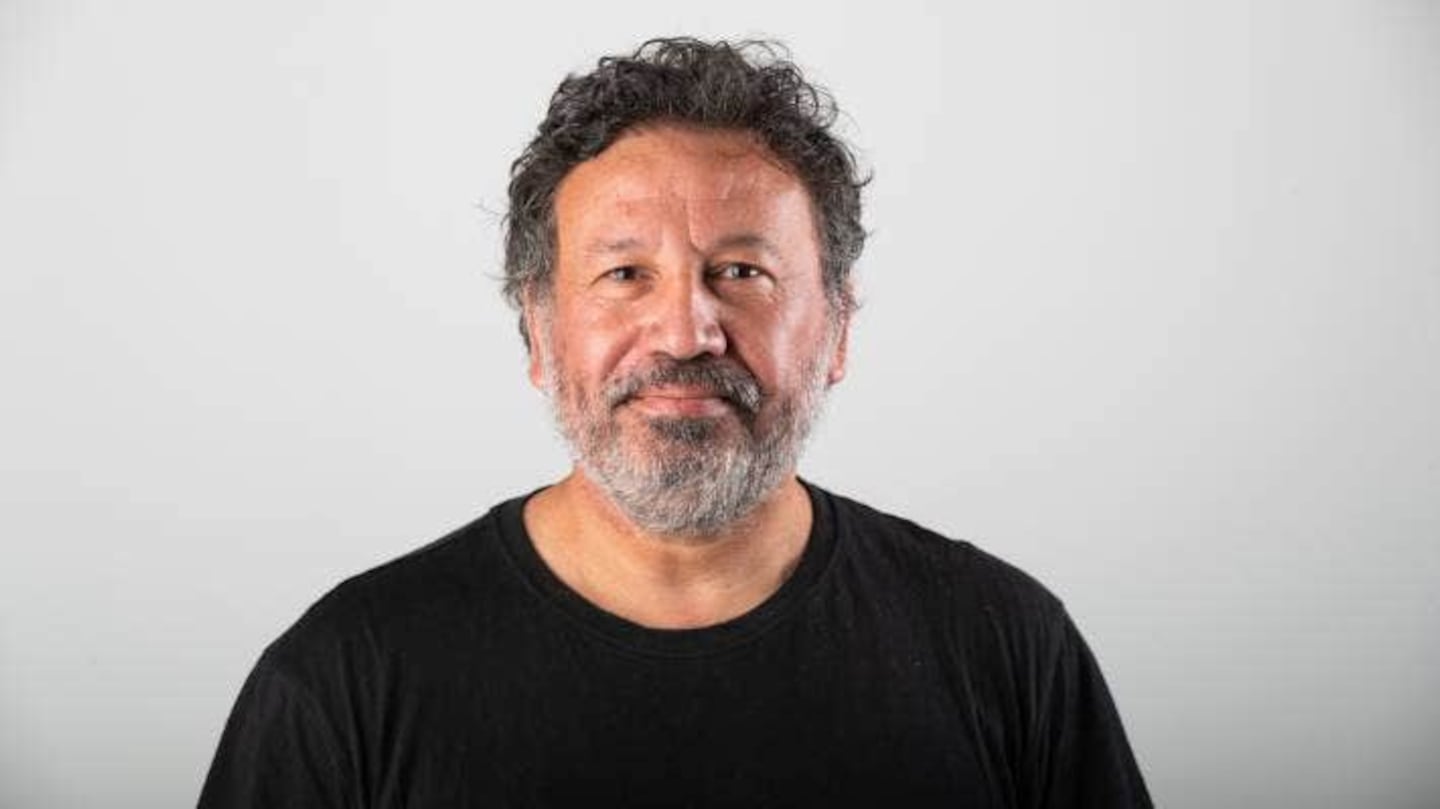This article was first published by Stuff.
Stuff senior writer and kaiwhakamāori Joel Maxwell (Te Rarawa) discovers the hidden message in this year’s theme for Te Wiki o te Reo Māori and explores what it means to celebrate a language under attack.
OPINION: In 1947, as the world wrestled with its new post-Manhattan Project ability to destroy itself, a publication called Bulletin of the Atomic Scientists invented the Doomsday Clock, a symbolic representation of how far we are from global destruction.
The clock was first set at seven minutes to midnight - midnight being kablooey.
Each year the clock is updated depending on the global state of play. As of 2024 the clock is set at 90 seconds from midnight.
I was haunted as a kid by the clock’s most potent message - that my life and beliefs and desires and the people and things I love are at the mercy of collective forces. No single person can reach out and push the hand of the clock backwards, away from midnight, no matter how much we wish we could.
This is the first Wiki o te Reo Māori since the 2023 election and while the event is about positivity and revitalising our language, for those who love te reo Māori me ōna tikanga it feels like we’re partying like it’s 1999.
For a while, the hand on our reo doomsday clock was ever-so-slightly creaking backwards. Support for the language grew, based, I suspect, on the realisation that this was a treasure that truly makes us unique and stronger as a nation.
But, for the first time in years, I feel like the hand is in danger of stalling.
We are in a phase of active collective opposition to our language: from maxi-micro aggressions like the Treaty Negotiations Minister Paul Goldsmith deleting reo Māori from official Matariki invitations, to the broad daylight ram raid on Māori wards, and to genuinely radical attacks from ACT on the principles of our founding treaty; the proposed replacement principles bobbing up a few days ahead of the start of our week celebrating reo Māori. That a supposedly mainstream party like National might even allow this bill to proceed to its first reading is remarkable.

This government has downgraded the status of the language in the public service in a symbolic display of contempt. The PM says it’s about better navigating our government. Then there’s the removal of the Māori health authority. The dumping of co-governance.
In other words, it is a table-creaking buffet of slights, direct attacks and erosions of the language and the constitutional foundation underpinning its official support.
The theme for this year’s week is ‘Ake ake ake - a forever language’. On the official website of the event it says it “represents the resilience, adaptability and endurance of our language”.
“Under enduring pressure te reo Māori has shown it will adapt and survive.”
I could be wrong but there does seem to be a bit of a hidden message in this year’s kaupapa.
At the very least it is looking forward to the future - which is probably a more pleasant thought than the here-and-now.
Having said that, it is electrifying to see the quality of the speakers at events like last week’s Ngā Manu Kōrero speech competition for school students (high quality language and personal character I might add).
This is encouraging but these events are like those exquisite stands of native forest you find dotted across Aotearoa, separated by hundreds of kilometres of paddocks, drains, fences, bare land. These days only a single-figure percentage of people speak the language truly well.
Perhaps a living language, a revitalised language, is about bridging the gap between those lone stands of ngaio, tawa, kauri, tōtara.
I truly believe that if even one-fifth of New Zealanders could speak our language - I mean, really speak it - then our country would become … well, something completely new in the Western world. It changes your thinking. It tames your fears and antagonism. It opens up an understanding of a different culture. It starts to rebalance too many years of injustice.
We’re not speaking the same language when we’re only speaking one language.
You cannot ignore the original people of this land. You just can’t. As I’ve said before - we’re too small as a nation, too confined, too reliant on each other for our elusive peace.
Nō reira, ehara i te mea ko te wiki nei he hākari noa iho hei whakanui i tō tātou taonga tuku iho.
Āe, ka whakamahanatia te ngākau e te kite i te mahi tautoko e puta nei i roto i tēnei wiki. Ka mutu, ka tino kitea te aro ki te reo i roto i ngā umanga pitopito kōrero, arā, e rapu ana ngā kairīpoata, i roto i ngā taiwhanga rongo kōrero puta noa, mō ōna āhuatanga hei hanga he pūrongo, hei kai mō te hinengaro o te kaipānui, kaimātakitaki rānei.
Mā tēnei e whakapakari, e whakamāori, e whakapūmau hoki te noho o te taonga nei i tēnei ao hurihuri.
Na, ko tērā tērā. Engari me maumahara - i takea mai te kaupapa nei i te whawhai, i te kakari a ngā kaiwhakatūtu o mua ki te whakaora i tēnei taonga nā runga i te petihana i tukuna ki runga i ngā arawhata o te Whare Pāremata i te 1972, i tēnei rangi pū e 52 tau ki mua.
Ka pātōtō tonu ngā mea e ngākau whiwhita ana ki te reo, i ngā tatau. Kāhore e kore e noho turi tonu ana ētahi ki roto i tērā whare i tēnei wā. E hika!
Heoti, kāhore e kore noki: iti nei, iti nei, ka taea.
(So it’s not necessarily the case that the week is only a celebration of our language. Yup - it’s heart-warming seeing the support of the language that pops up in this week. Furthermore, you can see the focus on the language in the news media - that’s to say journalists in newsrooms around the country hunting out stories covering aspects of the language to nourish the minds of our audiences. From this, the language will be strengthened and normalised, made more permanent, in an everchanging world.
So there’s that. But we should remember that this kaupapa originated in a struggle, a fight, by previous advocates to revitalise our treasure through the petition delivered on Parliament steps in 1972, on this day 52 years ago.
The people who love this language are still knocking on the doors, but undoubtedly there are still some inside that building who are obstinately ignoring us.
Anyway, also undoubtedly: little by little, we’ll get things done.)
Hāunga tērā kīanga (notwithstanding that saying) this year is not about warm fuzzies. There’s nothing warm and fuzzy about being whacked over the head with a doomsday clock. For people like me who don’t want to see our reo simply exist in a single-digit percentage twilight - despite the fact that those speaking it are indeed a gift, a treasure - it’s a reminder that even when some battles end, there’s still a need to win the peace.
We are still at the mercy of those collective forces that made me nervous as a kid but, I guess, through initiatives like the week ahead we learn that collectivity runs both ways.
We need to each raise our individual arms and grasp that minute hand and pull like crazy. It’s a sweet irony that by reversing time we can let go of the past.
If anything, Te Wiki o te Reo Māori is a reminder that we are not alone. So I urge you to take up the fight for every vowel, every whakataukī, every kīanga, every kia ora and every ka kite anō you can shout out against midnight.
- Stuff


